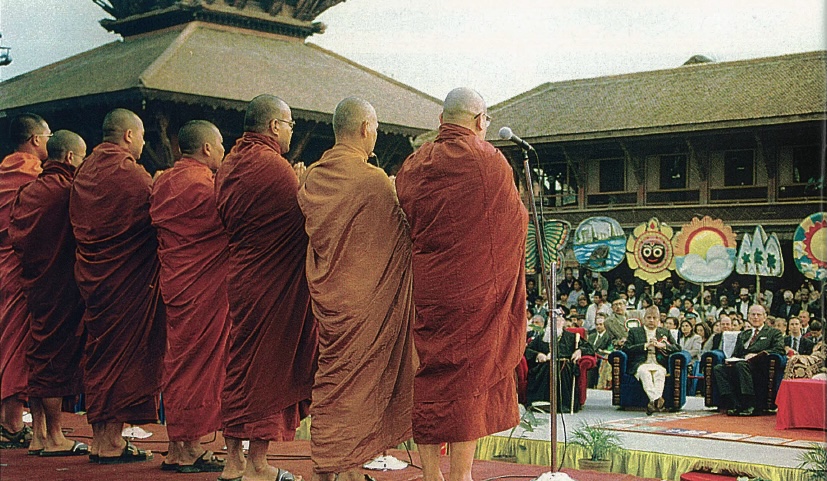By Hari Bansh Jha
The most valuable gift one can give to the environment is not money–it’s action. On November 15, 2000, religious leaders from 11 religions–Baha’i, Buddhism, Christianity, Hinduism, Jainism, Judaism, Islam, Shintoism, Sikhism, Taoism and Zoroastrianism–did just that. They presented 26 promises to improve the environment. “Sacred Gifts for a Living Planet,” held in Bhaktapur, Nepal, was organized by the World Wide Fund for Nature (WWF) and the Alliance of Religion and Conservation (ARC). Nepal’s King Birendra Bir Bikram Shah Dev inaugurated the function. Prince Philip of Britain, the Prime Minister of Nepal, Dr. Karan Singh and other dignitaries also attended. Festivities included Nepalese dances, rallies, parades, banners and posters in support of the environment.
The representatives of each faith read religious messages promoting a healthy environment. Each major faith then made at least one concrete pledge for world conservation. Hindu Nepal, for example, pledged to double the size of the famous Bardia National Park. A group of Hindus in Orissa, India, committed to reestablish the state’s sacred forests in honor of the ancient festival of Lord Jagannath. For a complete list of pledges, visit: http://panda.org/livingplanet/sacred_gifts/sacredgifts-summary.doc.
Dr. Claude Martin, Director General of WWF said, “Through these gifts, we’re reaching out to huge new constituencies– to the 4 to 5 billion people that these faiths represent–to work with them for the conservation of our living world. Sacred Gifts are catalysts for action. They are conservation templates for religious followers around the world–a community that is capable of having an incredible impact on efforts to save the natural world.”
